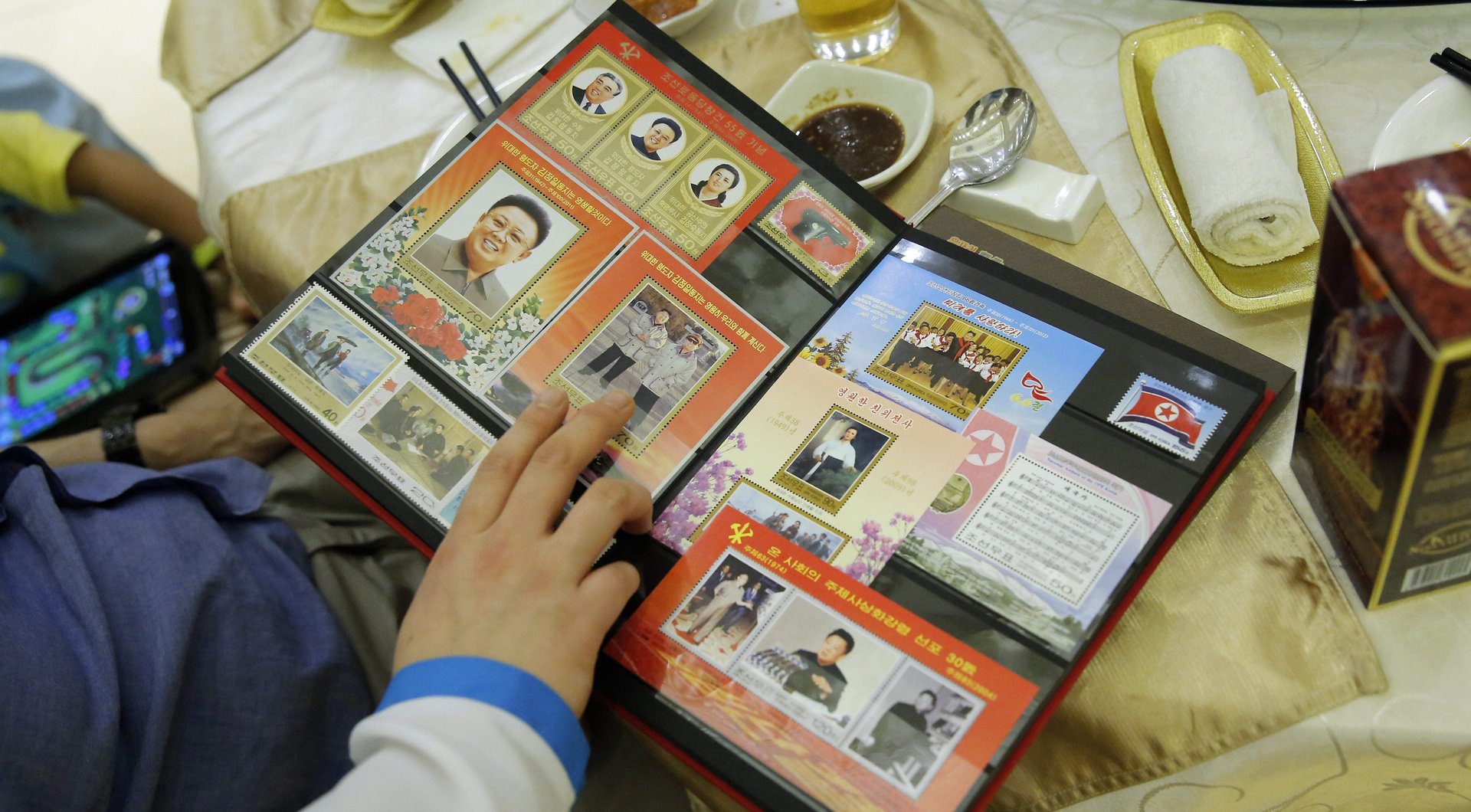Thanks to sanctions and Kim Jong-un’s brutality, more people are defecting from North Korea
An eventful month in North Korean defections is part of a trend of increasing numbers of people ditching Pyongyang for Seoul.


An eventful month in North Korean defections is part of a trend of increasing numbers of people ditching Pyongyang for Seoul.
Data released Sept. 7 from South Korea’s Unification Ministry show that the pace of defections is increasing again, after falling in recent years. Between January to August this year, 894 people defected from the north to the south, a 15% increase from the same period a year ago. South Korean officials forecast that the number could hit 1,500 this year, surpassing the number in 2014 and 2015.
The rising trend in defections in 2016 comes after a sharp drop in the last few years as North Korean dictator Kim Jong-un tightened border controls and brutally retaliated against defectors. That could be fueling more defections, even as it deters some.
Writing in 2015, longtime North Korea watcher Andrei Lankov said that North Korea’s economy was also on an upswing, with “death from starvation” no longer a “daily threat” for most citizens.
August saw one of the most high-profile defections from Pyongyang, a senior diplomat based in London. South Korea’s Unification Ministry said Thae Yong-ho was the highest-ranking North Korean official to have ever defected to South Korea. Seoul has also yet to confirm news that a North Korean diplomat based in Russia’s Far East defected with his family in July. One estimate says that at least seven diplomats have defected to South Korea this year.
Thae’s defection suggests that more and more people in North Korea’s privileged class are trying to leave the country, as international sanctions against Pyongyang following a series of missile tests by the regime this year start to bite. However, Lankov argues that an intensifying purge by Kim of the elite in North Korea is a greater factor contributing to the exodus. He said that the current dictator’s policy of repression is arguably more brutal than that of his father and grandfather, with executions a frequent occurrence.
The Database Center for North Korean Human Rights told South Korean news agency Yonhap that ”the ratio of North Korean defectors who say they were upper-middle or upper class back home has been increasing since several years ago.”
A group of 13 workers at a North Korean restaurant in the Chinese city of Ningbo also defected en masse to South Korea earlier this year. Their defections were all the more striking because people chosen to work at Pyongyang’s overseas restaurants—a way for the regime to earn hard cash—are often selected for their patriotism and loyalty and come from well-to-do families.